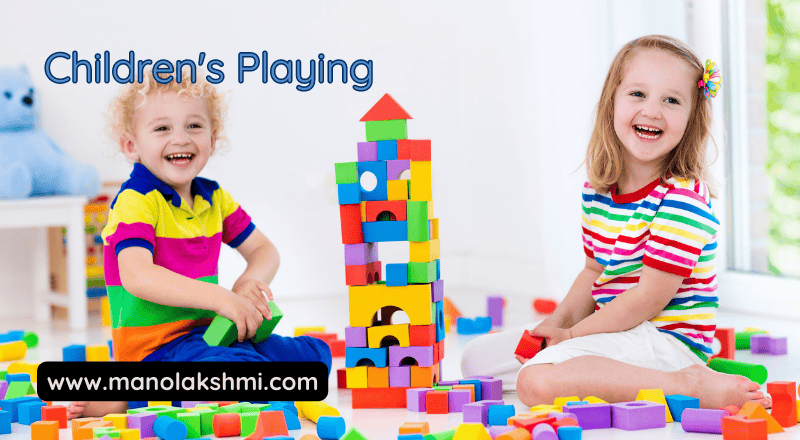Child care is the provision of care for children whose parents are working, attending school, or otherwise unavailable to care for them. Child care can be provided in a variety of settings, including daycare centers, family daycare homes, and nannies. There are many factors to consider when choosing a childcare provider, such as the provider’s experience, qualifications, and the quality of the care environment. Child care is an important part of the early childhood development process, and it can have a significant impact on children’s social, emotional, and cognitive development.
Provide a safe and nurturing environment.
Providing a safe and nurturing environment is essential for the well-being of all people, especially children. A safe and nurturing environment is one where people feel secure and supported and where they can thrive and grow. Many things can be done to create a safe and nurturing environment, including
Providing a safe and secure physical space.
Creating a positive and supportive emotional climate.
Providing opportunities for learning and growth
Promoting healthy relationships.
Addressing any safety or security concerns.
When people feel safe and nurtured, they are better able to learn, grow, and reach their full potential.
Meet your child’s physical needs:
Meet your child’s physical needs is one of the most important things you can do as a parent. This includes providing them with food, water, shelter, clothing, and a safe and healthy environment. It also includes providing them with love and affection and helping them to develop their physical and emotional skills.
Here are some specific things you can do to meet your child’s physical needs:
Feed them healthy meals and snacks.
Ensure they have adequate water to drink.
Dress them in comfortable, appropriate clothing.
Furnish them with a secure and healthy living space. Love them and show them affection.
Help them to develop their physical and emotional skills.
Meeting your child’s physical needs is essential for their health and well-being. It will help them to grow and develop into healthy, happy individuals.
Provide emotional support and love.
Providing emotional support and love can be done in many ways. Here are a few examples:
Listen to the person and offer your understanding.
Even if they don’t want to chat, be there for them.
Offer words of encouragement and support.
Do nice things for them, like cooking them a meal or giving them a massage.
Remind them that you care about them and are always available to them.
It’s important to remember that everyone expresses and receives emotional support differently. What performs for one existent energy does not work for the coming. The most important thing is to be there for the person and to offer your love and support in whatever way they need it.
Children’s playing activities:
Stimulate your child’s development through play and activities. Play is essential for a child’s development. It helps them learn about the world around them, develop their motor skills, and socialize with others. Play also helps children develop their imagination and creativity. Many different types of play can benefit a child’s development, including

Active play: This type of play involves physical activity, such as running, jumping, and climbing. Active play helps children develop their gross motor skills.
Imaginative play: This type of play involves pretending to be someone or something else. Imaginative play helps children develop their imagination and creativity.
Social play: This type of play involves interacting with other children. Social play helps children develop their social skills.
Constructive play: This type of play involves building things, such as blocks or Legos. Formative play helps children develop their fine motor chops.
Parents need to provide their children with opportunities to play. Recreation is a natural way for children to learn and promote.
Teach your child right from wrong
Teaching your child right from wrong is one of the most important things you can do as a parent. It will help them develop into a moral and responsible person. Here are some tips on how to teach your child right from wrong:

Be a good role model: kids pick things up by observing the adults in their lives. If you want your child to be kind, compassionate, and honest, be sure to model those behaviours yourself.
Talk to your child about right and wrong: Explain to them why certain behaviours are good or bad. Use age-appropriate language and examples.
Set clear rules and expectations: Make sure your youngster is aware of the expectations. Be consistent with your discipline.
Praise good behavior: When your child does something good, be sure to praise them. This will reinforce the behavior and encourage them to keep doing it.
Correct bad behavior: When your child does something wrong, be sure to correct them. Explain why the behavior was wrong and what they should have done instead.
Be patient: children must be patient as they learn right from wrong. Be patient and consistent with your teaching.
Don’t give up: Even if your child makes mistakes, don’t give up on them. Keep teaching them right from wrong, and they will eventually learn.
Set limits and boundaries: Child care
Setting limits and boundaries is important for everyone. It helps us to feel safe and in control of our lives. It also helps us to protect ourselves from being taken advantage of. When we set limits, we are essentially saying, “This is what I am comfortable with, and this is what I am not comfortable with.” It is important to be clear and assertive when setting limits. We should also be prepared to enforce our limits, if necessary.
Be clear and assertive.
Be prepared to enforce your limits.
Respect the limits of others.
Be willing to compromise.
Communicate your needs and wants.
Be honest with yourself and others.
Be willing to walk away from a situation that is not meeting your needs.
Setting limits and boundaries can be difficult, but it is worth it. When we set limits, we are taking care of ourselves and our well-being.
Visit and support our page: Food Decisions: Best Ultimate Guide to Making Healthy
Be a role model for your child’s care:
Be a role model for your child; you can do it as a parent. Your child is always watching you and learning from you, so it’s important to set a good example. Here are a few tips for being a good role model for your child:
Be kind and respectful to others.
Be honest and trustworthy, and be responsible and reliable.
To be hard-working and determined.
To be optimistic.
Be forgiving and understanding and loving and supportive.
Your child will learn from your actions and words, so make sure you are always setting a good example. They will look up to you and want to be just like you, so make sure you are someone they can be proud of.
Talk to your child about important topics:
Starting conversations with your child about important topics can be a great way to build a stronger relationship and ensure that they have the knowledge and skills they need to navigate the world around them.

Start early: It’s never too early to start talking to your child about important topics like health, safety, and relationships. Even if your child is still very young, you can introduce age-appropriate concepts that will set the foundation for more complex conversations later on.
Make it a two-way conversation: Instead of lecturing your child, try to make the conversation more of a dialogue. Ask your child questions and listen carefully to their responses. This will help them feel more engaged and invested in the conversation.
Be honest: It’s important to be honest with your child, even if the topic is difficult or uncomfortable. If you’re not sure how to approach a particular subject, take some time to educate yourself first so that you can provide accurate information.
Keep it age-appropriate: While it’s important to introduce important topics early on, it’s also important to keep the conversation age-appropriate. Avoid bombarding your child with too much information at once, and speak to them in terms they can grasp.
Child Health Care:
Taking your child to regular doctor’s appointments is important for their overall health and well-being. It allows the doctor to monitor their growth and development, screen for potential health problems, and provide vaccinations. Regular doctor’s appointments can also help to build a relationship between your child and their doctor, which can be beneficial if they ever need medical care in the future

Here are some of the benefits of taking your child to regular doctor’s appointments:
Monitor growth and development.
Screen for potential health problems.
Provide vaccinations.
Build a relationship with the doctor. Early detection and treatment of health problems
Peace of mind for parents.
If you have any questions or concerns about your child’s health, be sure to talk to their doctor.
Get help when you need it.
It is significant to memorise that every child is different and develops at their own pace. There is no single right way to care for a child. The most important thing is to love and support your child and to provide them with a safe and nurturing environment.
